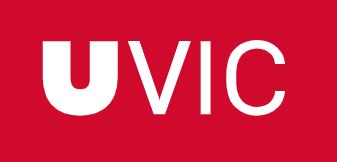Descripció del projecte
In the past decade, the healthcare field witnessed a breakthrough in the revolution of population’s data handling. This brought major challenges in the reshaping of the healthcare future, where the collection, storage and presentation of clinical information is moving towards a patient-centered approach. Latest technology innovations allowed to do so through data sharing and interoperability, technology exploitation, re-imagining value-based care through personalized care delivery. In this regard, a series of key players have been identified for the upcoming future of healthcare transformation.
Blockchain technology is a rapidly evolving field which is allowing for implementing data handling solutions in different fields. In healthcare, it has been recognized as having a wide range of applications and functions, by increasing the security, privacy, and interoperability of patients’ health data. Blockchain technology could provide a new model for health information exchange by improving data handling in a more secure and transparent way. Indeed, blockchain technology allows for continuous proof-of-concept testing and experimentation in healthcare by making it a major character in its near future. One of the developments that blockchain also allowed for is non-fungible tokens (NFTs) trading. NFTs is a type of cryptographic token which represents something unique. NFTs are therefore not identically exchangeable, as each token has its own value. Indeed, the past decades have highlighted the access to healthcare data (e.g., electronic health records) as one of the most valuable aspects for healthcare and digital health companies, hospitals, pharmaceuticals, etc. Nonetheless, while the role of NFT in healthcare is still speculative, they have been recognized as a novel approach for future healthcare innovation, and many companies are now exploring possibilities through its potential.
Another identified player, not so far from reality is the metaverse. The metaverse are virtual realities (VR) where human beings interact socially and economically trough avatars as if they were in tangible realities. Although there is still a lot of speculation upon the metaverse and its former concept, some predictions have the value of the metaverse reaching $800 billion in 2024. Currently, key tech players in the metaverse creation are Meta (Facebook owners), Microsoft, Nvidia, and Google, among others. Meta has invested its company future on virtual reality and the metaverse, by rebranding and spending large amounts of money to build hardware and software, going beyond the mere concept of virtual environment. It is proposed that VR services already existing in healthcare aim at further develop to be fully integrated in the metaverse. Among these, simulation scenarios with VR for medical training, including surgery and emergency simulations. Similarly, neurorehabilitation, as well as psychological therapy with VR allows for specific neuropathologies an improvement in motor, cognitive and psychological symptoms. In this regard, formerly part of the metaverse, medical digital twins’ technology has been recognized as another promising option in the near future of healthcare. This technology allows for a living data system which has been proposed as a new integrated approach for data capturing and leveraging data sources. Digital twins enable stakeholders to review care models on patients, delivering personalized health and prepare future healthcare challenges without risks.
Thus, it is clear that healthcare companies will unquestionably face major challenges in adapting themselves in the near future of healthcare, including exploring different models of combining the aforementioned technologies by trial and error; assuring data privacy the whole time; and finding major ways to cut healthcare costs, among others. Nonetheless, with no doubts, the future healthcare prospective channels all these already existing services and practices to create a new concept of healthcare ecosystem, changing the traditional paradigm of patients visits and clinical follow-up, data share, visualization, transfer & leveraging.
The aim of the project is to explore a more integrated and patient-centered framework of health data management. Later, an identification of possible business models implementations within the company, by leveraging existing company assets and differentiating factors will be carried out. The way in which this will be explored is by identifying new business models which incorporate the development of data standardization through blockchain technologies. The value that blockchain technologies provides, among others, is easier data access, transfer and NFT trading. Ultimately, a consideration of introduction of Sense4Care’s medical device through digital twin technology will be considered for a better digital asset on patient’s global health data.



